SLVSEA0B january 2018 – june 2023 TPS61280D , TPS61280E , TPS61281D
PRODUCTION DATA
- 1
- 1 Features
- 2 Applications
- 3 Description
- 4 Revision History
- 5 Description (continued)
- 6 Device Comparison Table
- 7 Pin Configuration and Functions
- 8 Specifications
-
9 Detailed Description
- 9.1 Overview
- 9.2 Functional Block Diagram
- 9.3 Feature Description
- 9.4 Device Functional Modes
- 9.5 Programming
- 9.6
Register Maps
- 9.6.1 Slave Address Byte
- 9.6.2 Register Address Byte
- 9.6.3 I2C Registers, E2PROM, Write Protect
- 9.6.4 E2PROM Configuration Parameters
- 9.6.5 CONFIG Register [reset = 0x01]
- 9.6.6 VOUTFLOORSET Register [reset = 0x02]
- 9.6.7 VOUTROOFSET Register [reset = 0x03]
- 9.6.8 ILIMSET Register [reset = 0x04]
- 9.6.9 Status Register [reset = 0x05]
- 9.6.10 E2PROMCTRL Register [reset = 0xFF]
- 10Application and Implementation
- 11Power Supply Recommendations
- 12Layout
- 13Device and Documentation Support
- 14Mechanical, Packaging, and Orderable Information
Package Options
Mechanical Data (Package|Pins)
- YFF|16
Thermal pad, mechanical data (Package|Pins)
Orderable Information
10.2.2.3 Application Performance Curves
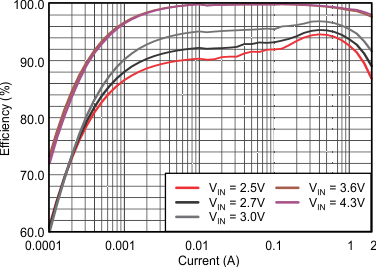
| VOUT = 3.3 V | VSEL = Low | Mode = Low |
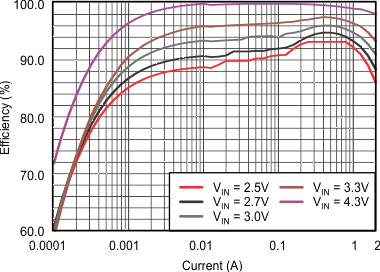
| VOUT = 3.5 V | VSEL = High | Mode = Low |
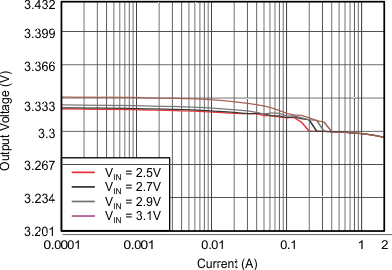
| VOUT = 3.3 V | Mode = Low |
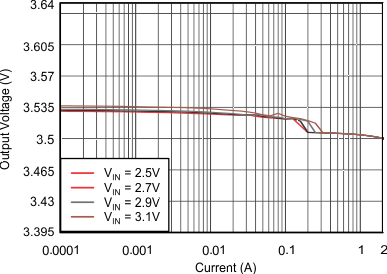
| VOUT = 3.5 V | Mode = Low |
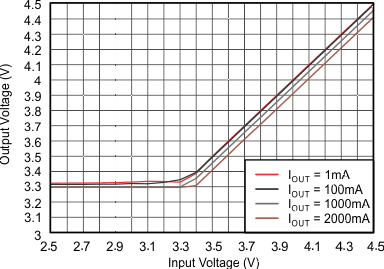
| VOUT = 3.3 V | VSEL = Low | Mode = Low |
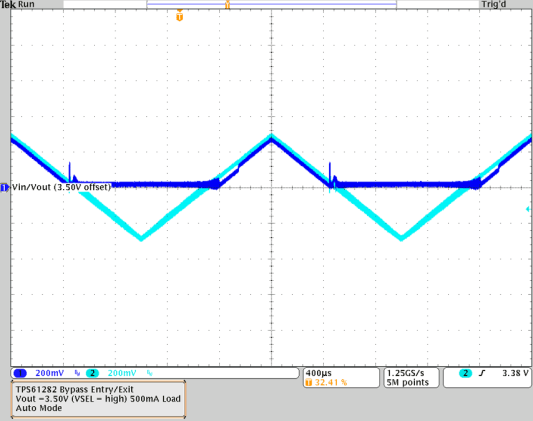 Figure 10-32 Boost to Pass-Through Mode Exit / Entry
Figure 10-32 Boost to Pass-Through Mode Exit / Entry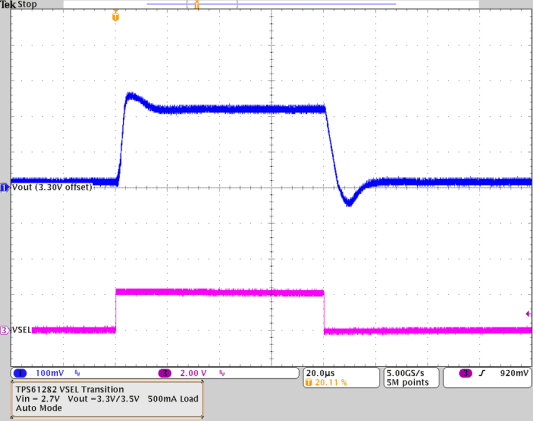 Figure 10-34 TPS61282D Dynamic Voltage Management (VSEL) Load Current 500mA
Figure 10-34 TPS61282D Dynamic Voltage Management (VSEL) Load Current 500mA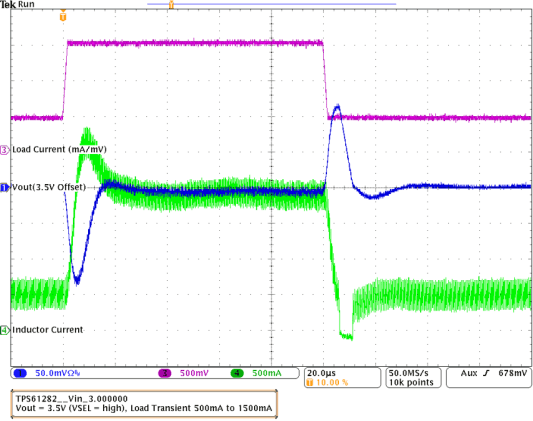 Figure 10-36 TPS61282D Load Transient Response In PWM Operation
Figure 10-36 TPS61282D Load Transient Response In PWM Operation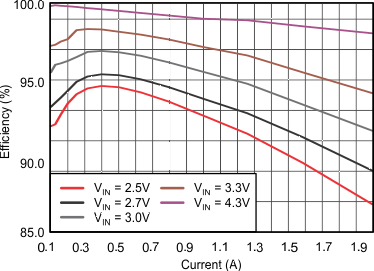
| VOUT = 3.3 V | VSEL = Low | Mode = Low |
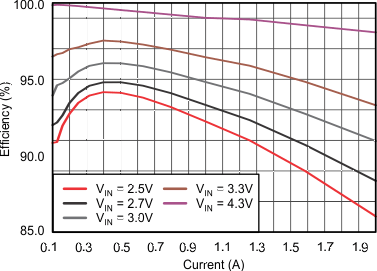
| VOUT = 3.5 V | VSEL = High | Mode = Low |
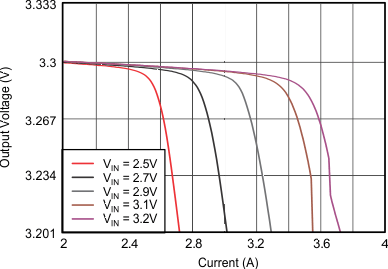
| VOUT = 3.3 V | Mode = Low |
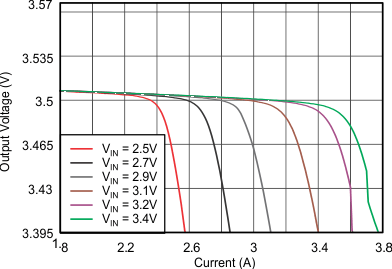
| VOUT = 3.5 V | Mode = Low |
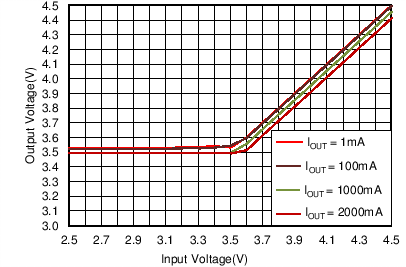
| VOUT = 3.5 V | VSEL = High | Mode = Low |
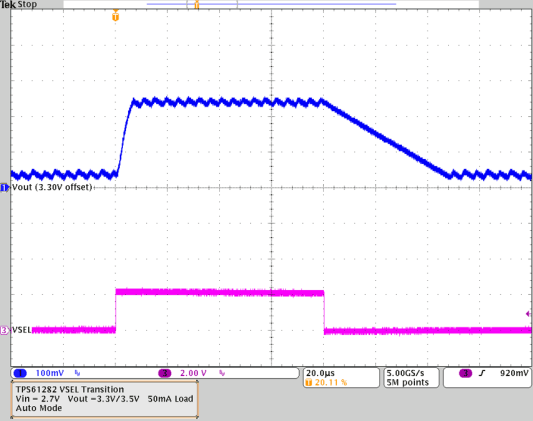 Figure 10-33 TPS61282D Dynamic Voltage Management (VSEL) Load Current 50mA
Figure 10-33 TPS61282D Dynamic Voltage Management (VSEL) Load Current 50mA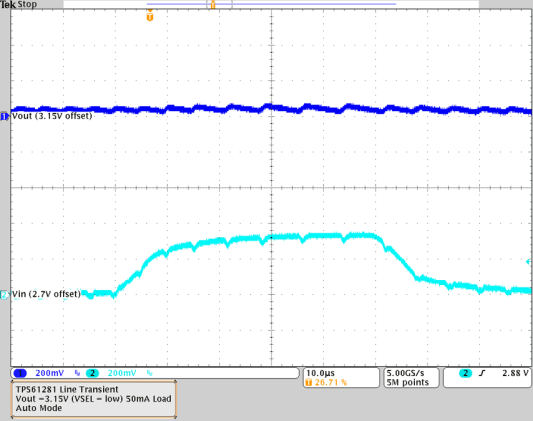 Figure 10-35 TPS61282D Line Transient
Figure 10-35 TPS61282D Line Transient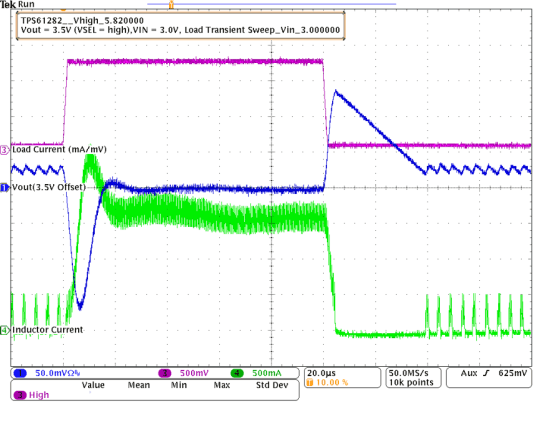 Figure 10-37 TPS61282D Load Transient Response In PFM/PWM Operation
Figure 10-37 TPS61282D Load Transient Response In PFM/PWM Operation